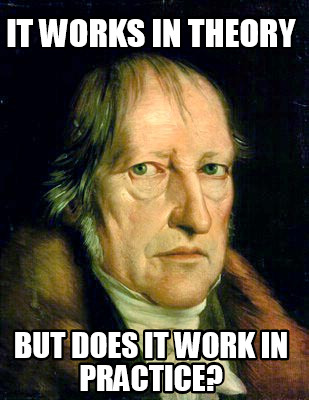I'll ask some questions about dialectical-algorithmic (DA). Why is the formula if-then-else indicative of it? How does that formula relate to dealing with oppositions, if at all? If DA is not a form of synthesis, then what is it? That is ...
Does DA have anything to do with cognitive dissonance? Would a goal of DA be to see oppositions and seek a middle way, or a means to blend them to create something new? Or would it allow for oppositions and unblendables and let them coexist, even if they are not reconcilable?
Also, would DA possibly relate to what is known as Rogerian argumentation? (
http://en.wikipedia.org/wiki/Rogerian_argument). This is a form of argument, or a rhetorical strategy, in which both or all "sides" of a matter are developed fully. The person using this forum of argument assesses the usefulness and accuracy of different viewpoints and tries to find a fair common ground. I wonder if there might be established rhetorical forms in general that best fit the four cognitive styles.
(And speaking of that, now I also wonder what Rogers's type is:
http://www.google.fr/search?q=carl+r...w=1202&bih=525)
What would be some real-world applications of DA? And how would it manifest differently in the different sociotypes Gulenko says employ it?





 Reply With Quote
Reply With Quote

